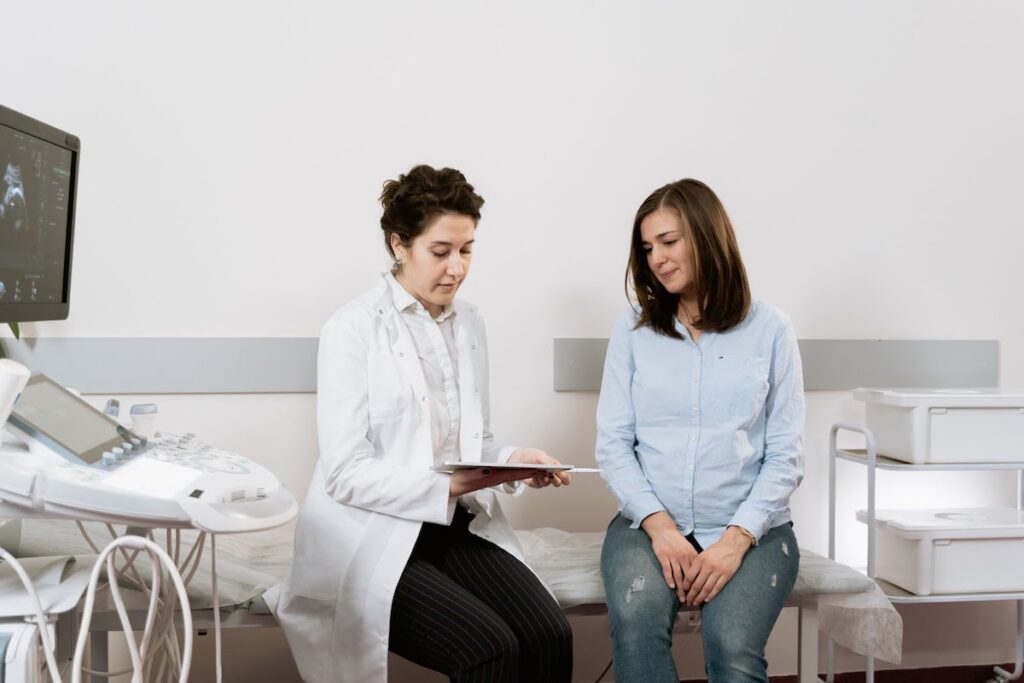Pregnancy over 35 is becoming an increasingly common trend in the United States. According to a study by the Pew Research Center, 86% of women ages 40 to 44 were mothers in 2016, compared to 80% in 2006, and the numbers have been growing since.
The United States Census Bureau shows fertility rates in women ages 20-24 declined by 43% from 1990 to 2019 while fertility in women aged 35-39 increased by 67%.
We see that fertility after 35 is possible, but what is the best way to ensure a healthy pregnancy?
Is 35 Too Old to Have a Baby?
Getting pregnant can be a joyous life event, but for women who are considering getting pregnant after 35, it can also be a source of frustration and present many challenges.
Women over the age of 35 are considered to be of “advanced maternal age”. While it may be harder to conceive after the age of 35 — especially if you are going into your first pregnancy — it is by no means impossible.
The two biggest obstacles facing women trying to get pregnant after 35 are diminished egg reserve and decreasing quality of the remaining eggs. Occasionally, a woman may have a cycle where an egg is never released; this happens more frequently as women get older. When no egg is released, pregnancy cannot happen.
The number of healthy eggs available also decreases, a phenomenon known as decreased egg reserve. What’s more, the quality of a woman’s eggs deteriorates as well.
How to Increase Chances of Getting Pregnant After 35
If you are considering getting pregnant after 35, it is important to be aware of your “fertile window.” Your fertile window is the 3-4 day-long period during your menstrual cycle that ends 24 hours after the time of ovulation.
If you wish to become pregnant, you need to track this period. Urine ovulation kits are an easy and relatively affordable way to help you do this.
Natural Ways to Improve Fertility After 35
There is no way to increase your egg reserve. However, a healthy lifestyle may have a positive impact on your ability to conceive. Studies suggest that smoking, lack of exercise, and a poor diet may adversely influence egg quality.
A lifestyle that includes a well-rounded diet, regular exercise, sufficient sleep, and manageable amounts of stress can improve your overall health, which may aid the chances of conception for some women.

Moderate Excercise
Moderate exercise is a great way to increase the chances of getting pregnant at 35. A study of 4,000 women in Norway found that movement for up to three hours daily helped regulate menstrual cycles and improved fertility.
It’s important to make sure you aren’t overdoing it, though; excessive exercise, which burns more than 2,000 to 4,000 calories per week, may impair ovulation in some women.
Avoiding Alcohol and Tobacco
The risks of pregnancy after 35 increase if you’re not taking care of your body, and tobacco and alcohol have been linked to a negative impact on fertility after 35. Women who smoke may be at a greater risk of experiencing issues during ovulation. This is because tobacco affects ovarian function in the form of egg quality decline.
Alcohol can also lead to an increased risk of hormonal imbalances that affect menstrual cycles.
Eating a Diet to Support Fertility After 35
When combined with fertility treatments, a balanced diet can help with a healthy pregnancy after 35. Some foods to include in your diet if you’re looking to improve your chances of getting pregnant at 35 include the following:
-
- Plant-based foods, including whole fruits like unpeeled apples, bananas, oranges, and strawberries.
-
- Seasonal vegetables.
-
- Protein sources such as tofu, seitan, and mycoprotein.
-
- Whole grains like oatmeal, brown rice, and whole wheat.
-
- Legumes like chickpeas, black beans, and red beans.
-
- Raw nuts
Treatments for Fertility After 35
In Vitro Fertilization (IVF)
In cases where initial fertility treatments prove ineffective or when unique circumstances or medical conditions come into play, in vitro fertilization (IVF) may emerge as the preferred treatment option.
IVF was initially designed for women with tubal factor infertility (a condition marked by non-functioning fallopian tubes), but significant advancements in this technique have reshaped its role.
Today, IVF is frequently considered the primary treatment choice, rather than a last-resort option, due to its potential for success and its adaptability to various infertility scenarios.
Mini IVF
Minimal IVF employs clomiphene citrate (commonly known as Clomid) along with lower doses of injectable hormones to retrieve a limited number of eggs, preventing premature ovulation and minimizing ovarian hyperstimulation.
This treatment is most effective for women who have diminished ovarian reserve and those who have previously experienced issues with poor egg quality in their treatment cycles.
Risks of Pregnancy After 35
In addition to having a more difficult time conceiving, there are several risks of pregnancy after 35.
Miscarriage is more common in women over 35, due to an increased incidence of chromosomal abnormalities.
Gestational diabetes is a temporary form of diabetes that affects some women during pregnancy. While it typically resolves after childbirth, it is a condition that requires careful management to ensure the health of both the mother and her unborn child.
Preeclampsia is a condition that can manifest after the 20th week of pregnancy or immediately following childbirth. It is characterized by elevated blood pressure and potential organ dysfunction, particularly affecting vital organs like the kidneys and liver.
Treatment Options to Prepare for Pregnancy After 35
If you’re not quite at the age of 35, but you’re not planning on having kids anytime soon, you might be considering treatment options to ensure you’re still able to when you’re ready.
Egg Freezing
Egg freezing is a great way to be proactive in preserving your fertility after 35. When you’re young, you generally possess healthier and more viable reproductive eggs. Freezing them in your 20s helps secure the highest-quality eggs possible for a future pregnancy.
Help is Available

If you are a woman over the age of 35 and find that you have not been able to conceive after more than six months, you may need to speak to a fertility specialist. While the chances of getting pregnant after 35 are there, it is also very important to identify any potential fertility issues as soon as possible to increase the window for fertility treatment or fertility preservation options.
At HRC Fertility, each fertility doctor lives out a commitment to helping you reach your goal of starting a healthy family. Contact us today to schedule an appointment for a fertility assessment.

